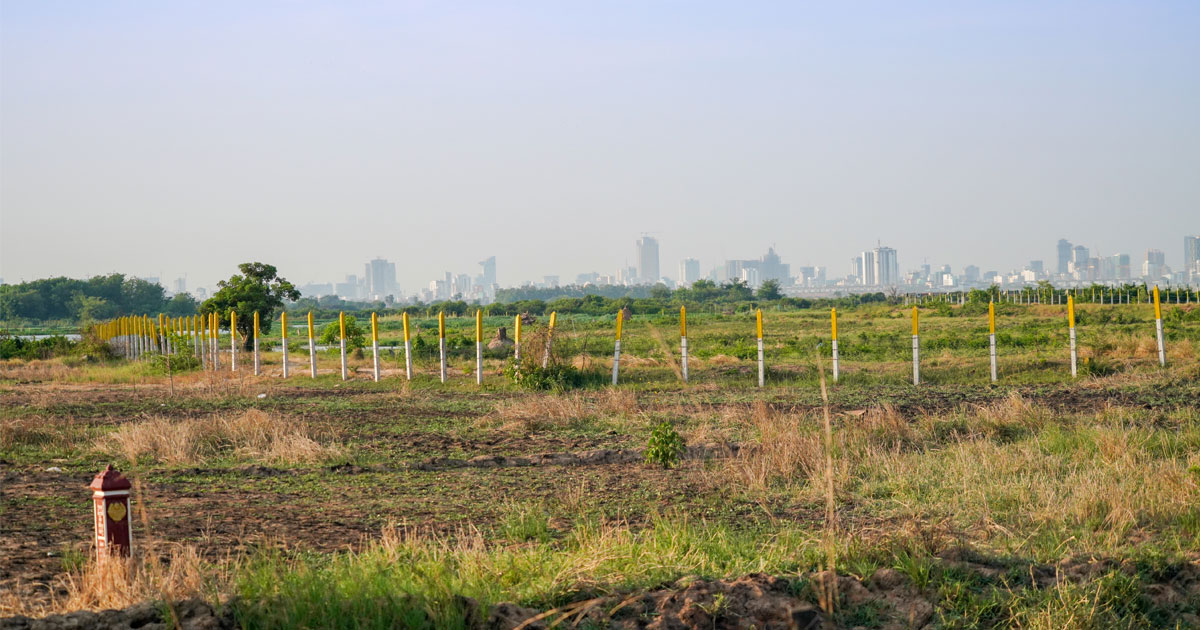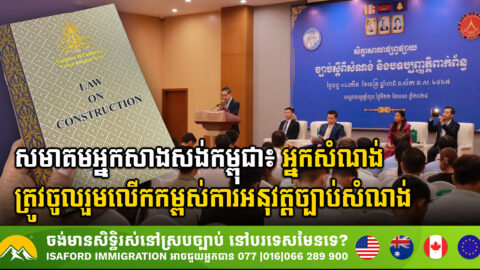A New Blueprint: CCA Unveiling of Cambodia’s Construction Regulations Sets Industry Standard
In a significant move for the construction industry, the Cambodia Constructors Association (CCA) led the way by hosting a workshop that unveiled new construction laws and regulations, setting a new standard for the sector’s future. This pivotal event, which took place on 22 April 2024 at the Olympia Hotel, saw the participation of over 100 […]
Room to Read’s 20-Year Impact: 339 Library Buildings Constructed in Cambodia
Over the past two decades, Room to Read Cambodia (RRC) has made a significant impact on education by constructing 339 libraries across Cambodia. This milestone was announced by the Ministry of Education, Youth and Sports on 9 April 2024. In addition to the construction of libraries, RRC has established 2,111 school libraries and provided training […]
Cambodia Emerges as Prime Investment Hub in ASEAN, Declares Deputy PM
Cambodia is the heart for investment within the ASEAN region, according to HE Sun Chanthol, Deputy PM and First Vice President of the Council for the Development of Cambodia. Speaking at the 2024 ASEAN-Cambodia Business Summit, he emphasised Cambodia’s strategic location and immense potential, making it an irresistible destination for investors. With Cambodia positioned at […]
Singapore New National Plan Commits Over US$15 million on Scholarships for 15,000 Top Students to Study AI Technology
Singapore has unveiled an ambitious plan to bolster its global standing in business and innovation by injecting more than S$1 billion, equivalent to over US$743 million, into artificial intelligence (AI) initiatives over the next five years. The announcement came as part of Singapore’s 2024 National Budget, demonstrating a strategic push towards technological advancement and economic […]
Cambodia Pioneers Digital Education with Launch of First Digital University in Kampong Speu Province
The Cambodian government has taken a significant step towards advancing digital education by issuing a sub-decree to establish the country’s inaugural digital university in Kampong Speu province. Sub-Decree No. 60, signed by Prime Minister Hun Manet on 22 March 2024, heralds the establishment of the Digital University of Cambodia (DUC), a pioneering private higher education […]
University of Digital Economics, Veal Sbov Branch, Valued at Over US$6 Million, Officially Unveiled by PM Hun Manet
The University of Digital Economics and Technology, worth more than US$6 million, built on 6 hectares of land in Veal Sbov Village, Sangkat Veal Sbov, Khan Chbar Ampov, Phnom Penh, has been officially inaugurated. The grand inauguration of the University of Digital Economics and Technology’s new branch, an investment exceeding US$6 million, situated on a […]



 ខ្មែរ
ខ្មែរ







